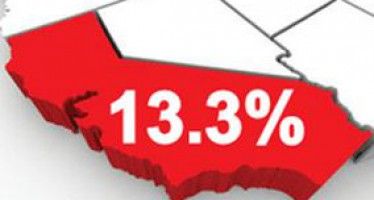Does John Chiang have a Boss?
JULY 12, 2010
By KATY GRIMES
Who is California state Controller John Chiang’s boss? The answer is surprisingly elusive. Right now, it appears that Chiang doesn’t even answer to the governor or the executive branch, much less the state’s judiciary.
Governor Arnold Schwarzenegger recently ordered Chiang to pay the state’s civil servant workers minimum wage until the legislature can pass a budget. But Chiang told the governor no.
Repeatedly.
Meredith Turney of the group Americans for Prosperity says that “since Chiang is willing to defy both the governor and the judiciary, something is holding his feet to the fire.” Turney suggests that Chiang is being directed to defy the governor by the state’s labor unions, all of which are very large contributors to his campaigns.
The SEIU labor union has maxed out their contributions to Chiang’s campaigns every year he has been in office, according to Turney. Chiang received more than $190,000 in campaign contributions from state employee labor unions in his 2010 re-election bid, which accounted for nearly 22 percent of all his contributions. According to campaign reports filed through May 22, 2010, Chiang received large donations from the California Teachers Association, SEIU, Electrical Workers Union, Firefighters Union, California Labor Federation Operating Engineers, and California State Council of Service Employees (click here for his contribution list).
Aaron McLear, Schwarzenegger’s press secretary, said the governor has filed a lawsuit and a Temporary Restraining Order to compel Chiang to follow the law. Sacramento Superior Court Judge Patrick Marlette is expected to rule on the case on July 16. Chiang had Sacramento Superior Court Judge Timothy Frawley disqualified from the minimum wage case and replaced with Marlette. But Marlette is the same judge who ruled in the governor’s favor over state worker furloughs.
Jacob Roper, the spokesman for the controller’s office, says that the governor’s lawsuit is not a problem. “If there is an order, the Controller will abide by the order,” Roper said. According to Roper, there is no actual order from a California court directing Chiang to pay state employees minimum wage –- just a Supreme Court ruling and an Appellate Court decision supporting that ruling.
McLear explained that the appellate court affirmed the California Supreme Court’s ruling in favor of the governor, in a lawsuit filed in 2008 after the governor’s first attempt to impose the minimum wage during the budget impasse. The latest ruling from the Appellate Court concludes that Chiang cannot ignore the governor’s minimum wage order.
But Chiang’s office says that since there is no court order, the controller is still following the law by not paying out minimum wage to state workers. It appears that the governor and administration are arguing that state wage law prevails here, as every employer in the state must follow, while Chiang is deferring to federal law.
Roper says Chiang wants a court order and not just a court ruling, leading many to believe that Chiang will keep suing to stall, pehaps even after a court order is issued.
The controller does appear to be cherry-picking who gets paid and who doesn’t, according to McLear. State employees who have been appointed by the governor or legislature are not getting paid right now. While we were talking, McLear looked at his paycheck and said it was all zeros.
McLear added that state employees receiving minimum wage would be immediately reimbursed for the remainder of their salary once the budget was approved.
And while the threat of minimum wage weighs heavily on state employees, none of their benefits, perks or subsidies would be cut. Health insurance, leave benefits, vacation and sick pay, pension contributions, parking subsidies, food subsidies and transportation subsidies would all remain intact.
But the state is not paying any bills right now, according to Roper, including all outstanding bills owed to the state’s vendors. McLear asked “how Chiang is paying civil servants their full wages if he can’t pay vendors, with no budget or appropriation to pay anything.”
Roper explained that the controller is especially concerned about the minimum wage order from the governor, since civil servants fall under the federal Fair Labor Standards Act. To not pay state civil servant employees in full would create penalties amounting to double wages. Roper explained that Chiang is trying to avoid the exorbitant penalties.
With Roper reporting that Chiang will abide by a court order to pay minimum wage, McLear asked how that would be possible since Chiang has said California’s computerized payroll system cannot handle the change because it can’t cut some checks at full pay and others at minimum wage.
Related Articles
Governor outlines weak agenda
Jan. 7, 2010 By JOHN SEILER He won’t be back. This was Gov. Arnold Schwarzenegger’s last State of the State
Tax Foundation: CA has fourth-highest state taxes
The newest figures just released by the Tax Foundation show California continues to be one of the highest-taxes states in
CA Dems Hold Looters' Convention
MAY 2, 2011 By JOHN SEILER H.L. Mencken called elections “advanced auctions of stolen goods.” That certainly was true of




